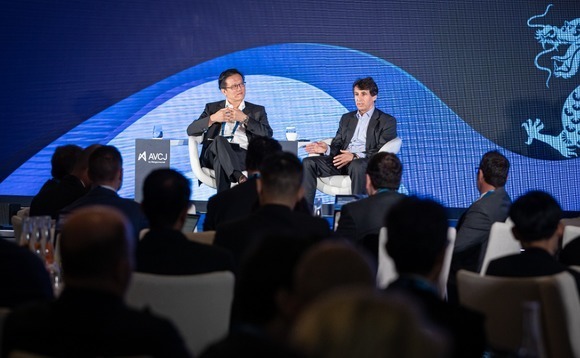
Apollo's Rowan tips alternatives allocations to top 50% - AVCJ Forum

Marc Rowan, CEO of Apollo Global Management, told the AVCJ Private Equity & Venture Forum that he expects most investors to have an alternatives allocation of at least 50% within five years.
"We must be clear on what the definition of an alternative is. We think of it historically as private equity, maybe a hedge fund, maybe some other special vehicle. The reality is it's just an alternative to publicly traded stocks and bonds. Alternatives exist from double-A to private equity," Rowan said.
"We used to think private was risky and public was safe. That's what we were taught – because alternatives were levered equity. Anyone who has just witnessed the carnage of the past year now understands that public does not mean safe. Public just means more liquid. And private does not mean risky, it just means less liquid."
Apollo has approximately USD 550bn in assets under management (AUM), of which USD 400bn is in private credit. Most of that is in what Rowan describes as safe yield, or "the kind of things that used to be on the balance sheets of banks and financial institutions, pre-2008." The remaining USD 150bn is split equally between hybrid equity – lower risk, lower return equity – and private equity.
Rowan maintains that hybrid equity continues to offer the best risk-reward, but the asset class is generally overlooked by institutional investors because they "primarily allocate to alternatives as part of their strategic asset allocation to get the highest rate of return, not the best risk-reward," and by individual investors who prioritise liquidity in their equity portfolios.
He believes investors should be more open to liquidity risk, arguing that excess return is available per unit of risk by giving up some amount of liquidity at every point on the investment spectrum – whether that is 10 years of liquidity for private equity or 90 days of liquidity for top-ranked bonds.
"We are, as a world, too liquid, because liquid is indexed, liquid is correlated, liquid is all beta, liquid is gambling. You want to invest, foresee a trend, step back from 90% of the money that is daily liquid and be illiquid," Rowan said.
"Everything people invest in today – investment grade credit, total return funds, real estate funds, REITs [real estate investment trusts], BDCs [business development companies], hedge funds, equity, private equity – will have their alternative form within the next six months. I can guarantee that because I know we are going to offer the entire spectrum and already offer most of that spectrum."
The swing towards alternatives is being enabled by technology that widens access. When Apollo launched its first retail-oriented product in 2000, investors paid two levels of fees, filled out stacks of documents by hand, managed capital calls and distributions directly, and tracked performance on a separate ledger to that of their other investments. Now, the entire process is automated.
Rowan regards the current global macro challenges as a return to normality. The last 10 years have been abnormal with central banks printing money and driving up asset prices. He claims that Apollo retained its discipline – noting "when you have as many type-A personalities in your firm as I have in my firm, the hardest thing is to get them to do nothing" – and is now "offensively minded."
He believes the tendency among investors to follow percentage allocations to alternatives is a fundamental flaw. It means they commit more capital when prices are high – because their overall portfolio is up – and then withdraw when markets correct.
"We look at the equity market today and we see the same mistakes that have been made over the 40 years private equity has existed," Rowan said. "Money put to work at low prices today, post-correction, with a healthy amount of scepticism, will generally outperform what has been done over the past decade."
Apollo is currently in the market with its 10th PE fund, which is set to close at around USD 25bn, the same size as the previous vintage. But the swift fundraising of recent years has been replaced by "a multi-year process, hand-to-hand combat," Rowan said, as investors find themselves over-allocated to private equity "at exactly the point in time when the opportunity is most attractive."
Latest News
Asian GPs slow implementation of ESG policies - survey
Asia-based private equity firms are assigning more dedicated resources to environment, social, and governance (ESG) programmes, but policy changes have slowed in the past 12 months, in part due to concerns raised internally and by LPs, according to a...
Singapore fintech start-up LXA gets $10m seed round
New Enterprise Associates (NEA) has led a USD 10m seed round for Singapore’s LXA, a financial technology start-up launched by a former Asia senior executive at The Blackstone Group.
India's InCred announces $60m round, claims unicorn status
Indian non-bank lender InCred Financial Services said it has received INR 5bn (USD 60m) at a valuation of at least USD 1bn from unnamed investors including “a global private equity fund.”
Insight leads $50m round for Australia's Roller
Insight Partners has led a USD 50m round for Australia’s Roller, a venue management software provider specializing in family fun parks.








